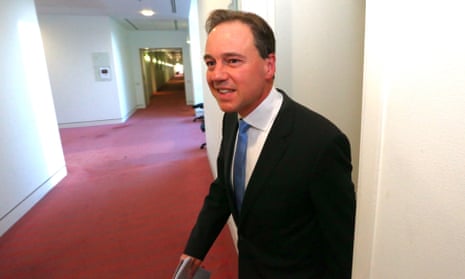The Turnbull government will announce $250m in loans for energy-efficient public housing on Tuesday, funded by an agency it is still seeking to abolish.
The $250m will be provided by the Clean Energy Finance Corporation (CEFC) to community housing providers to fund up to 1,000 new energy-efficient homes for low-income earners.
The government says it would still like to abolish the CEFC but cannot get the legislation through the Senate. Instead it is merging the body into a new division in the environment department called “climate change and renewables innovation”, apparently to reassure Coalition MPs sceptical about the CEFC’s operations that it is working in coordination with Coalition policy.
The environment minister, Greg Hunt, will say the $250m program fits with the government’s commitment to provide “better and more liveable cities” as well as to reduce greenhouse emissions.
The CEFC funded a smaller $60m loan program for a community housing in 2015 and, while the government has moved to change its investment mandate, investing in energy efficiency has been a core part of the organisation’s brief since it was set up as part of the former government’s carbon pricing package.
Under Tony Abbott, the Coalition sought to ban the CEFC from investing in windfarms and the former treasurer Joe Hockey labelled it a “giant $10bn slush fund”.
After Malcolm Turnbull became prime minister that directive was softened to a request that it focus on “offshore wind technologies” as well as cities and the built environment. Hunt says abolishing the investment bank is still his “long-term” policy.
During the Abbott years the CEFC’s funding announcements were also less likely to be accompanied by an announcement from the minister.
“By financing the development of homes which have the latest energy efficient measures built in, we can lower their long term energy needs and also minimise their impact on the environment,” Hunt says in a statement on the new loan program to be made on Tuesday.
“This is a very practical way to drive down household energy costs, which can make a real and positive difference for low income families.
“Energy-efficient homes could feature double glazing on their windows, or include high-quality insulation and ventilation to reduce heating and cooling needs. These are all important ways to reduce the energy demands of occupants, which has an environmental benefit as well as lowering costs.”

Comments (…)
Sign in or create your Guardian account to join the discussion